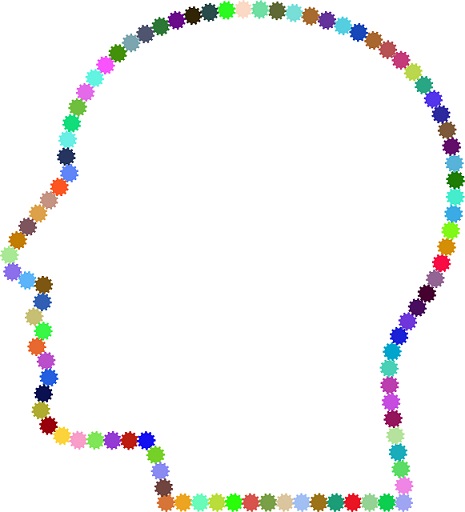Among these, clinical psychology and psychiatry often tend to be the most recognized, yet their differences are not always clearly understood. Today, we delve into the world of clinical psychology vs psychiatry to provide a comprehensive understanding of these distinct fields.
Understanding Clinical Psychology and Psychiatry
Clinical Psychology: An Overview
Clinical psychology, at its core, is focused on the application of psychological theories, models, and research to understand, prevent, and treat psychological distress or dysfunction. Clinical psychologists primarily deal with the assessment, diagnosis, and treatment of mental illnesses through psychological therapies, also known as psychotherapy. They help individuals, families, and groups enhance their well-being, alleviate feelings of distress, and resolve crises.
Psychiatry: An Overview
Psychiatry, on the other hand, is a branch of medicine dealing with mental health disorders. Psychiatrists are medical doctors who specialize in mental health, including substance use disorders. Their approach encompasses understanding the biological, psychological, and social factors contributing to mental illnesses. Unlike clinical psychologists, psychiatrists can prescribe medication, and their treatments often involve a combination of medication and psychotherapy.
Clinical Psychology Vs Psychiatry: The Key Differences
Now that we’ve established the fundamental definitions of the two fields, let’s delve into the key distinctions between clinical psychology and psychiatry.
Education and Training: Clinical Psychology vs Psychiatry
One of the most significant differences between clinical psychology and psychiatry lies in the nature of their education and training.
Clinical psychologists typically complete an undergraduate degree in psychology, followed by a doctoral degree in clinical psychology, either a PhD or PsyD. Their training emphasizes psychological theories, research, and clinical practice. They are also trained in administering and interpreting psychological tests.
Psychiatrists, on the other hand, attend medical school after their undergraduate degree. After earning their MD, they undertake a residency in psychiatry, learning to diagnose and treat mental health disorders from a medical standpoint. Their education equips them with the knowledge to understand the physical aspects of mental illnesses and use pharmacological treatments.
Assessment and Diagnosis
Clinical psychologists use psychological tests, interviews, and behavioral observations to diagnose mental health conditions. They gather subjective and objective data to create tailored treatment plans.
On the other hand, psychiatrists rely on a medical model, considering biological and neurological factors to diagnose and treat mental illnesses. They may use medical tests and brain imaging to gain insights into the underlying physical aspects affecting mental health.
Both approaches complement each other, providing a comprehensive understanding of an individual’s mental health and guiding effective treatment plans. Collaboration between clinical psychologists and psychiatrists leads to holistic mental health care for individuals with diverse challenges.
Approach to Treatment: Psychiatry Vs Clinical Psychology
While both clinical psychologists and psychiatrists can provide psychotherapy, their differing educational backgrounds often influence their treatment approach.
A clinical psychologist’s approach is largely grounded in psychological theory and research. They use a range of psychotherapeutic techniques, such as cognitive-behavioral therapy (CBT), psychodynamic therapy, and humanistic therapy, among others. These therapeutic strategies are designed to help individuals understand and change thought patterns that lead to harmful behaviors or feelings of distress.
Conversely, psychiatrists often adopt a more biomedical approach due to their medical training. While their psychiatry services also include psychotherapy, they can prescribe medication as part of the treatment process, which is particularly relevant for conditions like schizophrenia, bipolar disorder, or severe depression.
Scope of Practice: Clinical Psychology and Psychiatry Difference
Another significant difference between clinical psychology and psychiatry pertains to the scope of practice. While both professions address mental health issues, their scope can differ based on the severity of the condition.
Clinical psychologists often deal with individuals facing life stressors or those seeking personal growth and greater self-knowledge. They also treat serious mental illnesses, but their approach is primarily through psychotherapy.
Psychiatrists, given their medical background, often treat patients with severe mental illnesses where biological interventions, such as medication or in some cases, procedures like electroconvulsive therapy, are required.
Clinical Psychology or Psychiatry: Which is Right for You?
Understanding the key differences between clinical psychology and psychiatry can help individuals make informed decisions about the most appropriate professional to seek help from, depending on their unique needs and the nature of their concerns.
If your primary need involves managing life’s stresses, dealing with emotional crises, or seeking long-term personal growth, you might lean towards a clinical psychologist. On the other hand, if you believe your mental health issues stem from a biological basis, such as a chemical imbalance, or if your mental health condition is severe and requires medication, then consulting a psychiatrist may be more beneficial.
Remember, there is considerable overlap in the work of clinical psychologists and psychiatrists, and both are committed to helping individuals improve their mental health. The choice between clinical psychology and psychiatry isn’t necessarily an either-or decision; often, they work together as part of a multidisciplinary team to provide comprehensive mental health care.
Summing Up
In conclusion, clinical psychology and psychiatry are distinct fields within the mental health realm, each with its unique approaches, training, and treatment methodologies. Clinical psychologists focus on talk therapy and counseling, utilizing various therapeutic techniques to help individuals overcome mental and emotional challenges. On the other hand, psychiatrists bring a medical perspective, emphasizing medication management to address chemical imbalances in the brain. By understanding these differences, individuals can make informed decisions when seeking professional help for their mental well-being.
Remember that choosing between clinical psychology and psychiatry ultimately depends on the individual’s specific needs, preferences, and the nature of their mental health concerns. Seeking support from either field can be a crucial step toward achieving better mental health and overall well-being.























